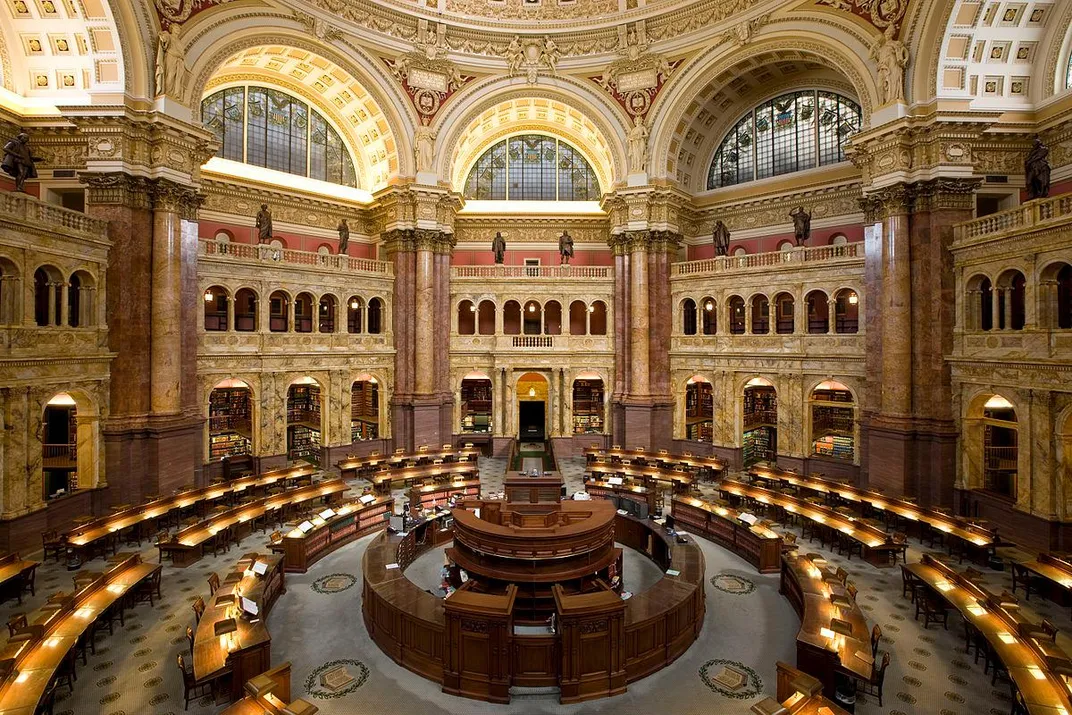Library of Congress Seeks Volunteers to Transcribe Letters to Theodore Roosevelt
The campaign is part of a broader crowdsourcing effort aimed at making archival materials more accessible to the public
:focal(-711x965:-710x966)/https://tf-cmsv2-smithsonianmag-media.s3.amazonaws.com/filer/2a/da/2ada4e9e-d9f6-43ff-a515-381f002205a1/tr_smiling_in_automobile.jpg)
Theodore Roosevelt got an awful lot of mail. From his time as a Rough Rider in the Spanish-American War to his unsuccessful bid for a third presidential term, the politician corresponded with friends, heads of state and regular Americans on a huge range of subjects. Now, reports Ellen Gutoskey for Mental Floss, the Library of Congress is seeking the public’s help to transcribe tens of thousands of letters addressed to Roosevelt.
The 26th president was a prolific writer, and archivists have previously preserved many of his letters, speeches, diary entries, books and other writings. But as Mental Floss notes, reading Roosevelt’s missives “can sometimes be like listening to one side of a telephone conversation.”
To fill in the other side of these exchanges, the library is asking volunteers to type up more than 50,000 handwritten documents. For each letter, one individual completes the transcription, while a second double-checks the first’s work.
So far, history buffs have completed around 12,500 transcriptions. More than 18,000 are in progress or under review, but well over 23,000 have yet to be claimed. Some of the documents include shorthand notes written by Roosevelt’s secretaries, so the library is particularly interested in finding volunteers who can read shorthand.
According to the library’s Rough Rider to Bull Moose campaign page, the collection covers a vast range of subjects, including “politics and political reform, wars and military policy, foreign relations, books and literature, family life, pets, the natural world, history, simplified spelling, cattle ranching, coal strikes, social functions, camping trips and safaris.”
The effort is part of By the People, a crowdsourcing project started by the Library of Congress in 2018. Carlyn Osborn, a digital collections specialist with the library, tells Federal News Network’s Jared Serbu that the project helps make collections more readily available to scholars and the public alike. Other ongoing campaigns include a set of papers from the women’s suffrage movement; a collection of Walt Whitman’s drafts, notes and letters; and Civil War writings by soldiers, nurses and other citizens. Completed projects range from letters to fellow president Abraham Lincoln to Rosa Parks’ papers and Susan B. Anthony’s archive.

Osborn says the documents included in the project are those that can’t be transcribed with optical character recognition, a system that uses technology to identify printed and handwritten text. Some documents have ink bleeding through from the other side of a page, while others were scanned imperfectly from microfilm, resulting in poor images. Many are handwritten. Having two people read each document helps ensure the fidelity of the final product, but as Osborn adds, it’s fine if transcribers can’t make everything out.
“The goal of our program is to make these pages more discoverable and accessible for everyone,” she says. “So we’re not aiming for perfection. We’re looking for stuff that’s good enough.”
Speaking with Smithsonian magazine’s Brigit Katz in July 2019, Lauren Algee, By the People’s senior innovation specialist, noted that the campaign seeks to “bring more … stories to light.”
In addition to transcribing correspondence, participants are encouraged to tag documents with key phrases not captured by the pages’ contents.
“I can't easily tell you what’s in a lot of these papers,” Algee explained. “There are scholars who have looked through every page of them and could read off ... a list of all the stories that are included. But I can’t easily search for those things.”
The Library of Congress isn’t the only institution looking for volunteer help with archival projects. Per Atlas Obscura’s Jessica Leigh Hester, the Newberry, a research library in Chicago, and the Bentham Project, which preserves the writings of philosopher Jeremy Bentham, are also looking for volunteer transcribers. So is the National Archives’ Citizen Archivist project, which asks people to transcribe handwritten Native American treaties or tag World War II posters for easier searching. The New York Public Library has a huge file of oral history interviews available for transcription. And, at the Smithsonian Digital Volunteers program, tens of thousands of people have transcribed more than 700,000 pages of field notes, diaries, manuscripts and other materials, with more available for new recruits.
/https://tf-cmsv2-smithsonianmag-media.s3.amazonaws.com/accounts/headshot/Livia_lg_thumbnail.png)
/https://tf-cmsv2-smithsonianmag-media.s3.amazonaws.com/accounts/headshot/Livia_lg_thumbnail.png)